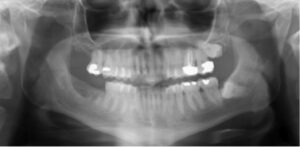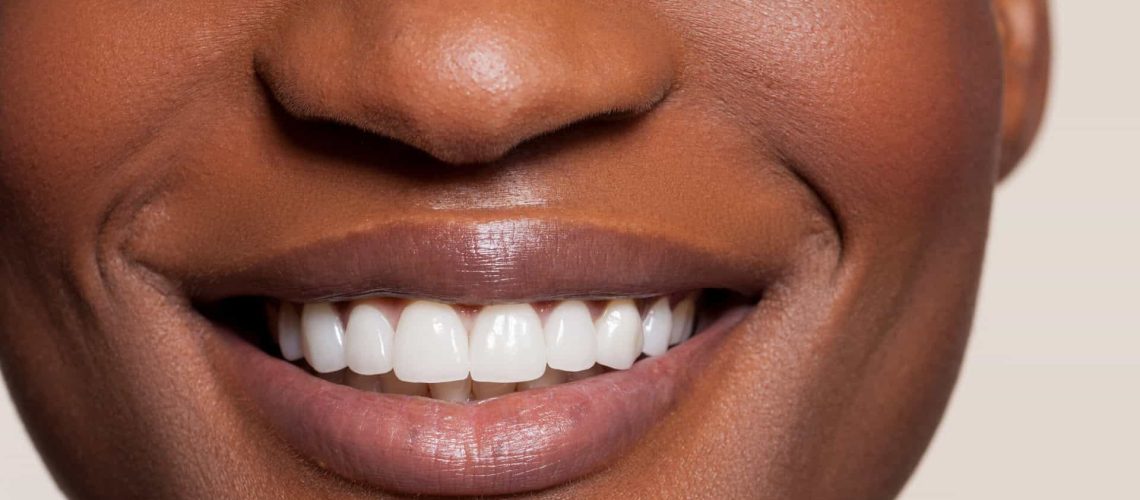Each tooth in the mouth has a specific name and most teeth have a specific function. The front teeth (incisors, canine and bicuspid teeth) are used to grasp food while the back teeth, or molar teeth, are used to grind food.
The average adult has 16 teeth on the top jaw and 16 teeth on the bottom jaw for a total of 32 teeth. However, the average mouth is designed to fit only 28 teeth. It can be painful when 32 teeth try to fit in a mouth that holds only 28 teeth. The four additional teeth, which are the last teeth in the back of the jaw, are your Third Molars, commonly known as “wisdom teeth.” Your wisdom teeth are usually non-functional teeth. That is right, you really don’t need them! Find out more about oral and facial surgery below.
What Is an Impacted Wisdom Tooth and Do You Need Oral and Facial Surgery?
When a tooth is unable to fully enter the mouth, it is said to be “impacted.” In general, impacted teeth are unable to break through the gums because there is not enough room present in the jaws. The most common impacted tooth is the wisdom tooth.
Why should wisdom teeth be removed?
1) Severe PAIN – when wisdom teeth erupt through the gums, pain can be felt. Patients should consult with an oral surgeon.
2) Infection – food often gets trapped around the wisdom tooth area. This is a magnet for bacteria causing the wisdom tooth to become infected.
 Infection (depicted in red) is caused by the wisdom tooth.
Infection (depicted in red) is caused by the wisdom tooth.
3) Decay – Cause decay on adjacent teeth and also the wisdom teeth – food can be trapped between the wisdom tooth and the tooth in front of it called the second molar.
 Wisdom tooth causing decay (gray color) on the adjacent tooth (the second molar)
Wisdom tooth causing decay (gray color) on the adjacent tooth (the second molar)

The above xray shows a lower right wisdom tooth with decay (the last tooth on your lower left side)

This is what the same wisdom tooth (The tooth on the left). Note that the cavity present is a black discoloration in the middle of the tooth.
4) Gum Disease – sometimes deep gum pockets can be created behind the second molar depending on how the wisdom tooth erupt. Deep gum pockets mean bacteria pockets. This can lead to bone loss, gum disease, infection and pain.
5) Shifting of Teeth – the pressure from erupting wisdom teeth can cause shifting of teeth eventually disrupting the natural alignment of your smile. What if you had orthorthodontic treatment (which is $$$$) and you now have the perfect smile? Your teeth are perfectly aligned and white. You definitely do not want your wisdom teeth to compromise all the hard work and money you have put into braces.
6) Cysts or tumors may form around the impacted wisdom tooth causing destruction of the adjacent jawbone and teeth. Removal of the offending impacted wisdom tooth or teeth usually remedy these problems. Early removal is recommended to avoid future problems and to decrease the surgical risk. Consult an oral surgeon like Dr. Ronald Achong (located in Orlando and Clermont, Florida) for oral and facial surgery.

This picture shows a cyst (green color) growing around the wisdom tooth.

This xray shows a cyst (the black oval shape) can form around a wisdom tooth (lower left impacted tooth that is oriented upside down). This patient is in his later 50s and this cyst was found on a routine panoramic xray. The cyst is large in size and is affecting the 2nd molar and 3rd molars (Lower left back side of the X-ray). Note also the amount of bone that has been destroyed due to the cyst. It is recommended that you have an xray of the entire jaws taken every few years.

The patient had the cyst removed along with involved wisdom tooth and 2nd molar. The cavity from which the cyst was removed has healed well.
So there are many reasons why wisdom teeth should be extracted in oral and facial surgery. Discuss your individual situation with an oral surgeon. Some dentist remove wisdom teeth, but oral surgeons are formally trained to remove wisdom teeth. Oral surgeons tend to be more efficient, faster, experienced, have a lower complication rate and can provide sedation.
Some of the cartoon pictures were taken from www.aaoms.org


